- Home
- Franklin Horton
The Borrowed World (Book 4): No Time For Mourning Page 2
The Borrowed World (Book 4): No Time For Mourning Read online
Page 2
Rockdell Farms was one of the oldest continually operating businesses in the United States, having been established before the Revolutionary War. The original deed to the property was signed by Patrick Henry. It was one of the largest cattle operations east of the Mississippi River. At one point it had been nearly a hundred thousand acres, though the size had been greatly reduced over the years. Still, they raised tens of thousands of cattle and sheep every year.
When Jim had gated off the road between the valley and town, he and the other residents accepted that there would still be some people who needed to come and go, which was why he’d used a gate instead of sawing a tree down across the road. He didn’t have a problem with residents of the valley coming in and out. He hadn’t thought about the folks working Rockdell Farms because the farm had its own network of roads and those folks rarely passed through his valley to get there. He wondered why they opted to come in by a different road. There had to be a reason. Anything that didn’t make sense was a reason for concern. It might mean you had a problem that you didn’t even know about yet.
Jim’s radio chirped.
“What’s up, Jim?”
It was Gary, who was now living in Jim’s valley after having been run out of his home in a nearby town. The guy had made many of the same preparations as Jim had, then his location proved unsustainable. Too many neighbors. Too many scumbags.
“I got eyes on the truck. There’s some guys I recognize. Don’t really know them. Maybe if I recognized them, they’ll recognize me. They work at the big farm as you come into the valley the back way. I used to pass these same guys every day driving to work and we’d throw a hand up at each other. I want to talk to them about why they came in from this side of the valley. They never do that. They have their own road system.”
“Is that a problem?” Gary asked.
“Just being cautious. If there’s some kind of trouble on the other side of the valley that kept them from coming in the normal way I want to know about it. I’d hate to be totally oblivious to some developing threat right in our backyard. We’re kind of operating in the dark here and any information is helpful.”
“You think it’s safe to go talk to them?”
“As safe as anything these days, I guess. I’ll be armed.”
“They may be too,” Gary replied.
“I’ll be careful,” Jim assured him. “If I follow the creek that feeds the pond, it will bring me out at one of the bridges near that farm. I’m hoping that’s about where I’ll find them.”
“How about I go with you? I could hang back and provide a little backup.”
“That’ll work,” Jim said. “But hopefully I won’t need you.”
“You never know when shit will get crazy. If we’ve learned anything these past weeks, we’ve learned that.”
Jim smiled. Gary didn’t use much foul language, though curse words were occasionally slipping out now. The state of the world was rubbing off on him. It was a barometer of the times.
Jim walked the woods to Gary’s house, the scenery as peaceful as any on Earth. The house that Gary was staying in had belonged to Jim’s good friend Henry, now dead along with his wife and son. They’d been killed by a scumbag named Charlie Rakes who had been released prematurely from jail when the county couldn’t feed the inmates anymore.
Gary was waiting on him with an AR-15 and a vest of gear. They set off without a word, following a creek that ran through the inner recesses of undisturbed farmland. There were no houses, or any signs of man visible for most of the walk, save for the occasional strand of rusty barbed wire embedded in a tree. Jim imagined it looked much like it had when Daniel Boone passed through the area on his way to the Cumberland Gap.
Eventually they reached a fence, a concrete bridge, and the road that exited through the back of the valley. Beyond that, in the distance, they could see an open gate and the dually truck pulled just inside. The two men he’d seen in the cab of the truck were pushing a four-wheeler down the ramp at the back of the cattle trailer.
“You stay here,” Jim said. “You’ll have cover if you need to fire.”
“Got it,” Gary said. “Be careful.”
Jim climbed up the bank and walked in their direction, his M4 rifle in front of him on a single-point sling. He didn’t hold it at a ready position, but he did keep a hand on it, which was necessary to keep it from bouncing off his body. While he didn’t want to appear threatening, at the same time he didn’t want to appear defenseless. He had to be ready.
One man swung onto the ATV and started it. He shot off down the pasture, headed for a cluster of cattle at the far end of the fenced meadow. The remaining man pulled some steel gate panels off the trailer and quickly set up a temporary loading chute to funnel the cattle onto the trailer. He pulled a pint liquor bottle from his back pocket and watched the other man round up cattle. He unscrewed the cap and was taking a swig when Jim called to him.
“Hello!”
The man jumped, sputtering, and nearly dropping his bottle.
“Easy now,” Jim said, holding a hand up in front of him. “Didn’t mean to startle you.”
The man threw a quick glance to the ATV, checking to see if his buddy knew they had company. He quickly screwed the cap on the bottle and shoved it back in his pocket, like Jim might take it from him.
“Glad you didn’t spill that,” Jim said. “That would have been tragic.”
The man nodded and cracked a wary smile. He could appreciate a joke about liquor. He was missing most of his teeth, except for a few scattered in his lower jaw. He looked like a human Jack-O-Lantern. “Ain’t so easy to get right now.”
“That’s a fact. What’s your name?”
The man hesitated. “Hodge.”
“I’m Jim. I live back in here. I pass you guys here every day working this farm,” Jim said. “You usually see me in a dark blue Chevy with a cap on the back.”
“I recall the truck,” Hodge replied, the familiarity not putting him at ease. “You needing something?”
“Not really. Like I said, I live here in the valley and I noticed you guys coming through. We haven’t seen much traffic at all,” Jim said. “I wondered if there was some reason you drove in through my end of the valley instead of this end. I want to make sure there’s nothing out there that I need to be worried about, other than the obvious shit.” Jim was trying to keep it friendly and conversational, hoping to put Hodge at ease.
It appeared to be working. Hodge relaxed a little. “You the ones put the gate up back yonder?”
Jim nodded. “We did. There were too many people coming through just looking for trouble or looking to steal. We wanted to let them know they weren’t welcome. Thought the gate might at least slow them down.”
“You might have to replace the lock then,” Hodge said. “We had to cut the son-of-a-bitch off.”
Jim ignored that even though it irritated him. He gestured toward the small herd of cattle. “Patrick selling some cows or just moving them?”
Patrick was a descendant of the original owner of Rockdell Farms and the one currently running things. He was in his sixties and had grown up in the operation. Jim didn’t know him well. They were just acquaintances.
“Why you give a shit?” Hodge asked. He looked a Jim warily, then turned back to watch the ATV again. He pulled the bottle from his pocket, took a quick nip, and tucked it back.
“I’m asking because I know some folks who might be in the market for buying a few cows if they’re for sale. I ain’t trying to stick my nose in anybody’s business.”
Hodge looked satisfied by this. “Patrick ain’t likely to be selling no cows anymore,” the man said. “He’s dead.”
Jim was surprised for a second, then realized it was a purely old-world reaction. People were dropping like flies in the current state of the world. There wasn’t any reason to be shocked that someone had died. There were a lot of things a man could die from these days.
“What happened?”
�
�Caught some people breaking into this house and tried to run them off. They was a better shot than he was. Killed him and his wife both.”
Jim nodded, letting this sink in. “So who’s running the farm?”
Hodge shrugged. “Ain’t no one running it. Patrick only had the one son and he’s out west. He ain’t likely to make it back here anytime soon.”
Jim had never been able to hide what he was thinking and feeling very well. He never had much of a poker face. His looks always gave him away. Right now his look was saying that he understood this man didn’t have any right to the cattle he was taking. At least no more right than anyone else. Although he didn’t intend it to be accusing, apparently the man took it that way.
“Look, we got to do something with the cattle,” Hodge said defensively. “We won’t be able to get feed this winter. They ain’t no more hay or silage being put up. They’ll starve and die off. Our families will probably starve and die off too if we don’t get some food coming in.”
“You have a point,” Jim said.
The sound of the ATV grew louder and Jim could see that it was headed in their direction, slaloming back and forth to steer a herd of cows in this direction. Hodge noticed too, and he looked nervous.
“I reckon I’m going to have to get back to work,” Hodge said.
“I’ll get out of your way then,” Jim said. “I was just wondering how you guys were set for fuel. If you have enough fuel to be hauling cattle, maybe you have enough to trade?”
“What’s in this truck is all the fuel we got between us, but word is that Wallace County is buying cattle,” Hodge said. “They got a lot of hungry people over there and some of them have a lot of damn money. You know that big subdivision over by the golf course? They took up a collection and they’re paying people to haul in cattle plus they’ll provide all the fuel. They even got their own security guarding the place.”
“Really?”
“Yep. This is the first load but we heard they’ll buy whatever you bring them.”
When the ATV reached them, the driver kept a wary eye on Jim, though he couldn’t stop what he was doing without the cattle scattering. Hodge jumped into action, yelling at the cows and tapping them on the back with a long stick. After a few minutes of tapping and hollering, the cattle were all loaded. The ATV was loaded up too, the cattle panels propped up against the fence so they’d have them for the next load.
The man from the ATV wiped his forehead with his shirttail and pulled a jug of water from the cab of the truck. He’d yet to acknowledge Jim. He drank from the water jug, now staring at Jim. When he’d finished, he wiped his mouth on the back of his hand. “Who the fuck are you?”
“I’m a neighbor,” Jim said, trying to take the high road for a change. “I used to pass you guys every day on my way to work. Just thought I’d stop in and see if you’d heard any news.”
“Ain’t heard a damn thing,” the man said. He looked at the other man. “Hodge, you hear any news?”
Hodge shook his head. “Nary a bit.”
“Then there you go,” the other man said. “Nothing to tell.”
Jim had tried to be friendly throughout the conversation even though that wasn’t natural for him. He did it because he was trying to put them at ease and gain some information. Being dismissed like this was pissing him off, though.
“With times being what they are, a fellow should be friendly to his neighbors. You never know when you might need one of them.”
“I’ll take my chances,” he said. “Get in the truck, Hodge. We got places to go.”
The driver started the truck and drove out the gate, maneuvering the long trailer between the posts. Jim followed along behind them. When the truck was through, Hodge leaned out the window. “You mind getting that gate for me, buddy?”
“Shut your own fucking gate,” Jim told him and walked off.
Chapter 3
Randi
When Randi walked into her parents’ kitchen that morning, she went straight to the coffee pot out of habit. It was clean and empty. Her head dropped. She’d survived quitting cigarettes, but the lack of coffee was going to be the death of her. “Shit!”
“We’re out,” her dad, Ernie, said from behind her. “Coffee’s all gone now.”
He was sitting there at the kitchen table, a cigarette in one hand, his favorite coffee cup in the other. He took a sip from the mug.
“Then what’s that?” she asked.
“Hot water,” he replied. “I’m pretending.”
“How’s that working for you?”
“It ain’t.”
“Going to be out of those things soon,” she said, nodding at his cigarette. “You might as well go ahead and quit like I did.”
Her dad took a drag on the cigarette and shook his head. “Ain’t gonna.”
“When that carton runs dry, you’ll be quitting whether you like it or not.”
“Got a tobacco patch,” her dad said. “I’ll be rolling my own by winter.”
“I thought you sold your allotment?” Randi asked.
Farmers had been growing tobacco on a quota system since around the Great Depression. Although the crop was a labor intensive effort, it brought in more cash than most other crops a farmer could raise. Around 2004, the government started buying those allotments back from farmers, essentially paying them to not raise tobacco.
“I did sell my allotment, but I always liked having a little ‘baccy patch. Selling the allotment didn’t mean you couldn’t grow any. It just meant you couldn’t sell it. I had a little patch this year, and I’ll grow more next year. Can you imagine what people will pay for tobacco if they can’t buy cigarettes at the store?”
“A lot,” Randi said. “If you can hang on to it.”
Her dad shrugged. “We’ll hang onto it. Between me and your brothers, we’ll keep it.”
“I wish you could grow coffee,” she said, casting another forlorn glance at the empty drip coffeemaker.
“Reckon I wish I could too.”
Randi sat down at the table and rested her face in her hands, staring at her dad.
“What’s wrong, honey?” he asked.
“What isn’t wrong? I quit smoking and there’s no coffee. I don’t know what to do with myself in the morning now. This keeps up I might have to take up jogging or something.”
Her dad grinned and let out a low, steady laugh.
“I might,” she said, mildly offended.
He shook his head and kept laughing, sounding like the struggling starter on a car with a low battery.
The sound of footsteps coming through the house made them turn. Randi’s daughters came in. When Randi looked at them, she saw teenagers, though both were in their mid-twenties now. It was hard for her to comprehend that it had been so long since they were born, since they were children. Where had the time gone?
The fact that they were together now and that they were both looking at her made it clear that they had something on their minds. They were conspiring, just as they’d done their entire lives.
“What is it?” Randi asked, already suspicious.
“We want to go see Dad,” said Carla, the youngest. She was always the spokesperson – or mastermind – for whatever schemes the two developed.
Randi dropped her head to the table, allowing it to thump off the surface several times. “No coffee, no cigarette, and now I have to hear about your dad.”
“We haven’t heard from him,” Carla said, her sister nodding in agreement. “We’d at least like to know if our dad is still alive. You’d want to know your daddy was safe, wouldn’t you?”
“My daddy isn’t an assh—”
“Randi Ward!” her dad said, cutting her off. “It’s too early in the morning for cussing. I can accept it at the dinner table but not at breakfast.”
“I haven’t had breakfast,” Randi reminded him. “Nor coffee.”
“Well, I’m having mine,” he said, nodding at his cup of hot water and his cigarette.
Randi sighed. “Look, girls, he hasn’t made the first effort to check on you two,” Randi said, turning her head sideways to look at her daughters while still not lifting it from the table. It was obvious that talking about her ex-husband was not her favorite subject.
“He could be hurt or injured,” Carla pleaded. “He could need us.”
“Or he could be drunk and laid up with some floozy,” Randi said, then shook her head. “Oh, sorry, that was when we were married and you girls were babies.”
Her daughters frowned at her.
“That’s ancient history, Mom,” Sherry spoke up. “You’ve got to move on. It’s been, like, fifteen years or something.”
Randi lifted her head from the table and looked at her father. “Give me some help here, Dad.”
Earl tamped his cigarette out in a blue glass ashtray. “Can’t blame the girls for wanting to see their dad,” he said. “Even if you hate him, he’s still their daddy.”
Randi turned to her daughters. “You know we’re completely out of gas now and it’s probably a two-hour walk each way.”
“We know,” they said in harmony.
“When’s the last time either of you walked that far?” Randi asked.
The girls looked at each other, then back at their mom. The answer was never but they weren’t going to give her the satisfaction of admitting it.
“We can do it,” Carla insisted.
“Oh, I know you can do it,” Randi admitted. “Sherry can do it too. I hope you know, though, that those grandkids cannot do it.”
“They want to see their grandfather,” Sherry protested. “It’s been weeks.”
“They’ve gone weeks without seeing him before. It was sometimes weeks between his visits when the world was normal,” Randi said. “Those kids can’t walk it and we can’t carry them the whole way.”
Sherry had three children from her ex-husband. No one even knew where he was anymore. He’d disappeared from the picture over a year ago. Sherry had no idea that he’d only disappeared because Randi had paid him to. She’d used a bonus check from work to bribe him into signing away his parental rights and disappearing forever. He’d been hesitant until Randi explained that if he didn’t take the money, she’d give it to a couple of shady country boys she knew and they’d make him disappear. Either way, the result would be the same. The choice was his and he chose wisely.

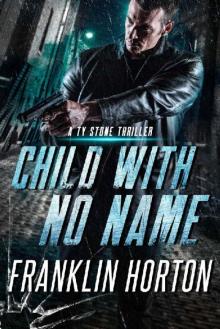 Child With No Name
Child With No Name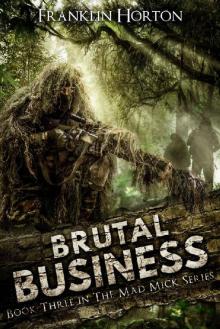 Brutal Business: Book Three in the Mad Mick Series
Brutal Business: Book Three in the Mad Mick Series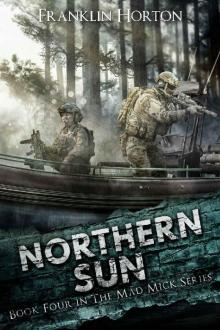 Northern Sun: Book Four in The Mad Mick Series
Northern Sun: Book Four in The Mad Mick Series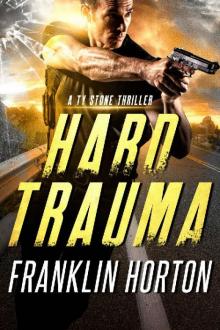 Hard Trauma
Hard Trauma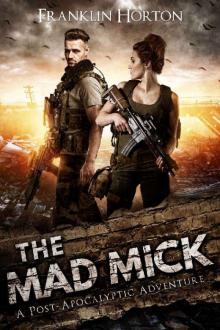 The Mad Mick: Book One of The Mad Mick Series
The Mad Mick: Book One of The Mad Mick Series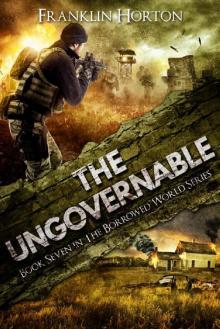 The Ungovernable
The Ungovernable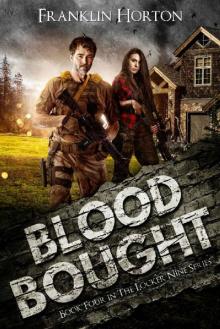 Blood Bought: Book Four in The Locker Nine Series
Blood Bought: Book Four in The Locker Nine Series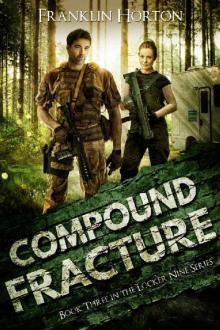 Compound Fracture
Compound Fracture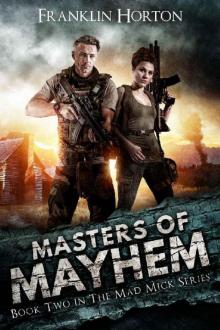 Masters of Mayhem
Masters of Mayhem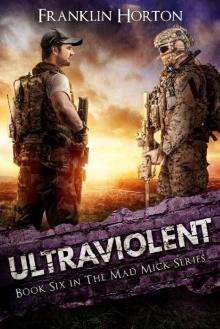 Ultraviolent: Book Six in The Mad Mick Series
Ultraviolent: Book Six in The Mad Mick Series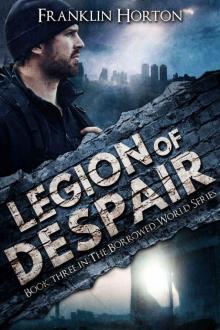 The Borrowed World (Book 3): Legion of Despair
The Borrowed World (Book 3): Legion of Despair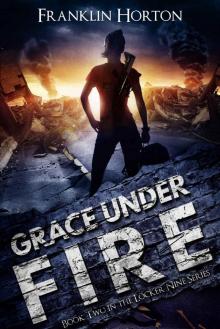 Grace Under Fire: Book Two In The Locker Nine Series
Grace Under Fire: Book Two In The Locker Nine Series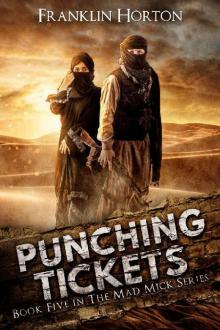 Punching Tickets: Book Five in The Mad Mick Series
Punching Tickets: Book Five in The Mad Mick Series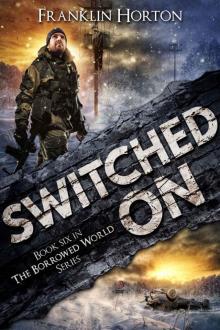 Switched On: Book Six in The Borrowed World Series
Switched On: Book Six in The Borrowed World Series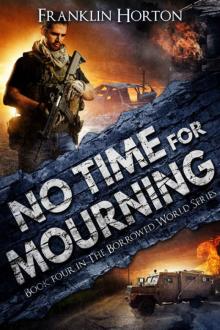 No Time For Mourning: Book Four in The Borrowed World Series
No Time For Mourning: Book Four in The Borrowed World Series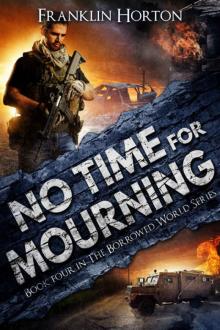 The Borrowed World (Book 4): No Time For Mourning
The Borrowed World (Book 4): No Time For Mourning Random Acts
Random Acts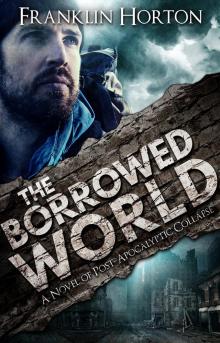 The Borrowed World: A Novel of Post-Apocalyptic Collapse
The Borrowed World: A Novel of Post-Apocalyptic Collapse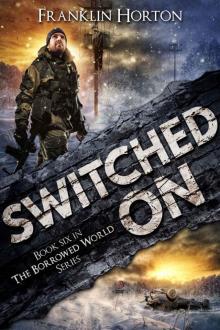 Switched On
Switched On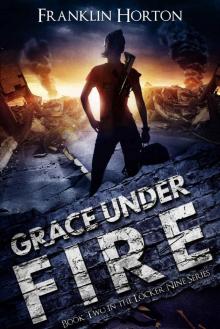 Grace Under Fire
Grace Under Fire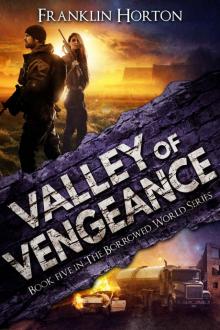 Valley of Vengeance: Book Five in The Borrowed World Series
Valley of Vengeance: Book Five in The Borrowed World Series